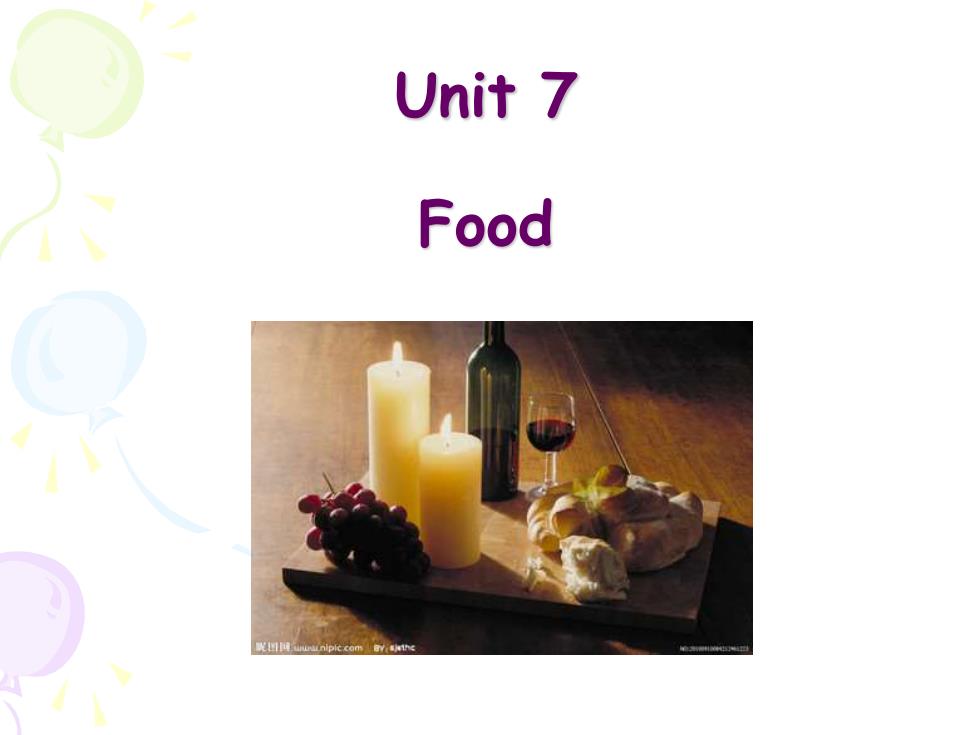
Unit 7 Food
Unit 7 Food
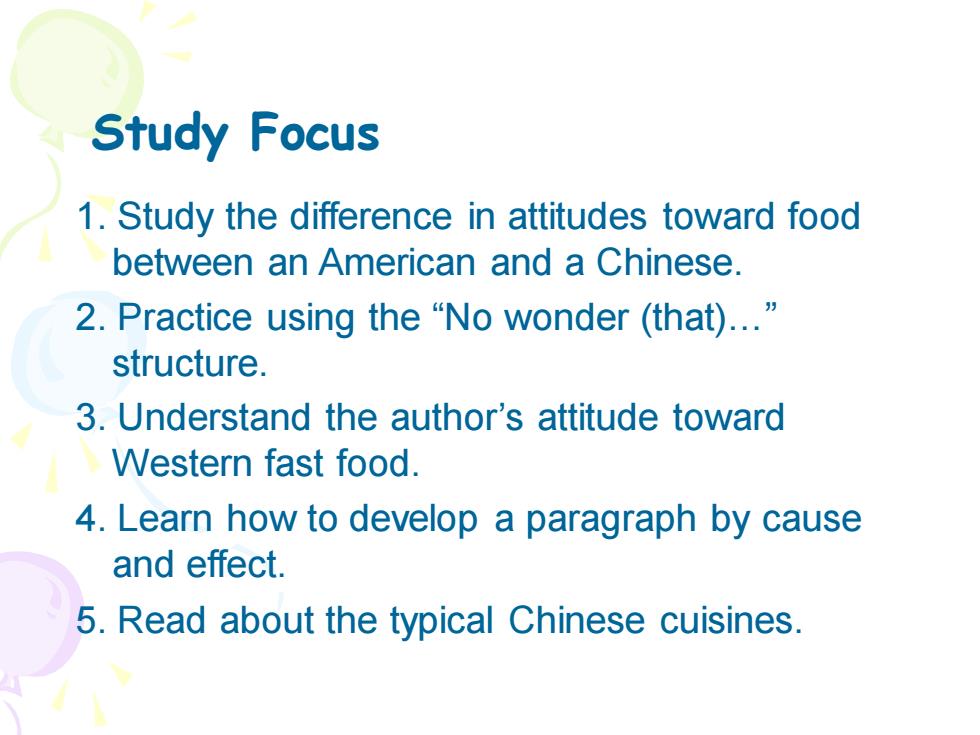
Study Focus 1.Study the difference in attitudes toward food between an American and a Chinese. 2.Practice using the“No wonder(that)..” structure. 3.Understand the author's attitude toward Western fast food. 4.Learn how to develop a paragraph by cause and effect. 5.Read about the typical Chinese cuisines
Study Focus 1. Study the difference in attitudes toward food between an American and a Chinese. 2. Practice using the “No wonder (that)…” structure. 3. Understand the author’s attitude toward Western fast food. 4. Learn how to develop a paragraph by cause and effect. 5. Read about the typical Chinese cuisines
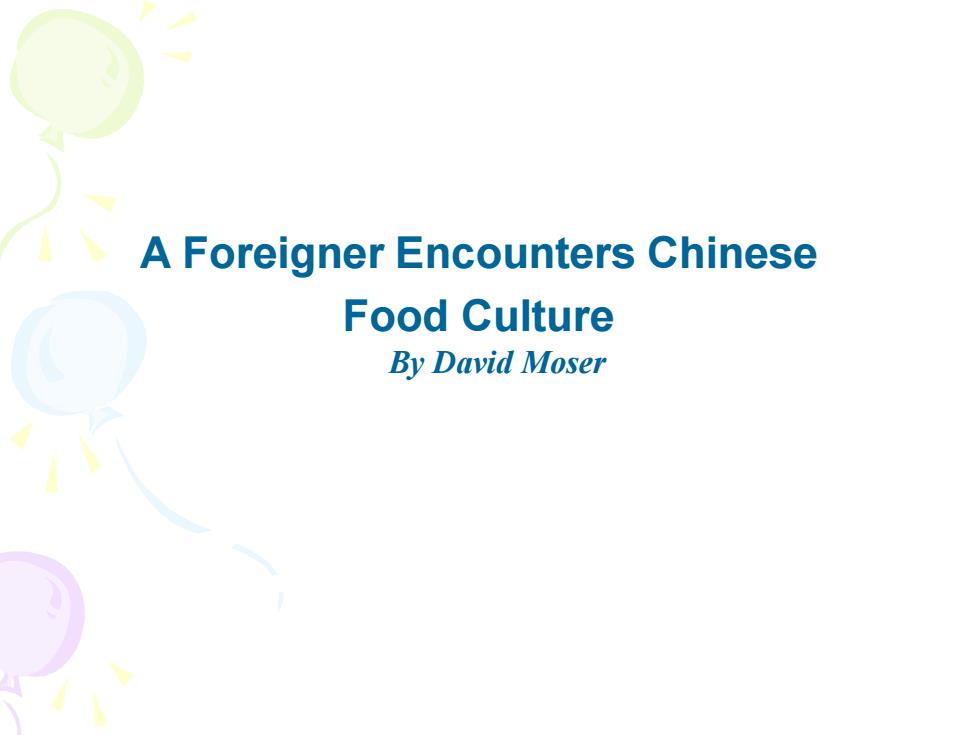
A Foreigner Encounters Chinese Food Culture By David Moser
A Foreigner Encounters Chinese Food Culture By David Moser
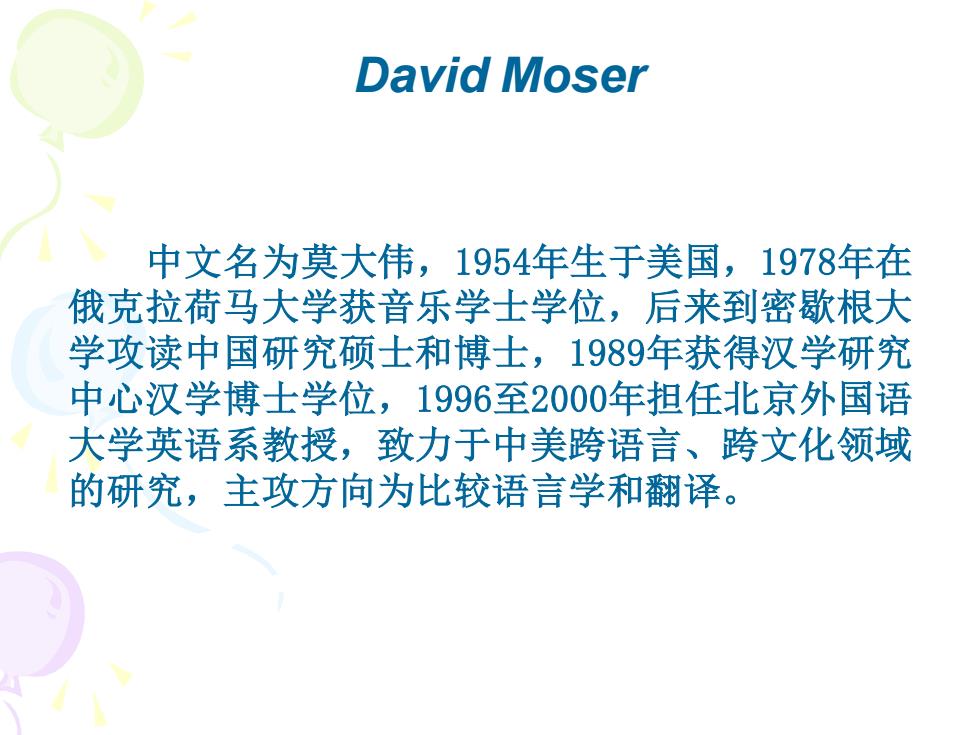
David Moser 中文名为莫大伟,1954年生于美国,1978年在 俄克拉荷马大学获音乐学士学位,后来到密歇根大 学攻读中国研究硕士和博士,1989年获得汉学研究 中心汉学博士学位,1996至2000年担任北京外国语 大学英语系教授,致力于中美跨语言、跨文化领域 的研究,主攻方向为比较语言学和翻译
中文名为莫大伟,1954年生于美国,1978年在 俄克拉荷马大学获音乐学士学位,后来到密歇根大 学攻读中国研究硕士和博士,1989年获得汉学研究 中心汉学博士学位,1996至2000年担任北京外国语 大学英语系教授,致力于中美跨语言、跨文化领域 的研究,主攻方向为比较语言学和翻译。 David Moser
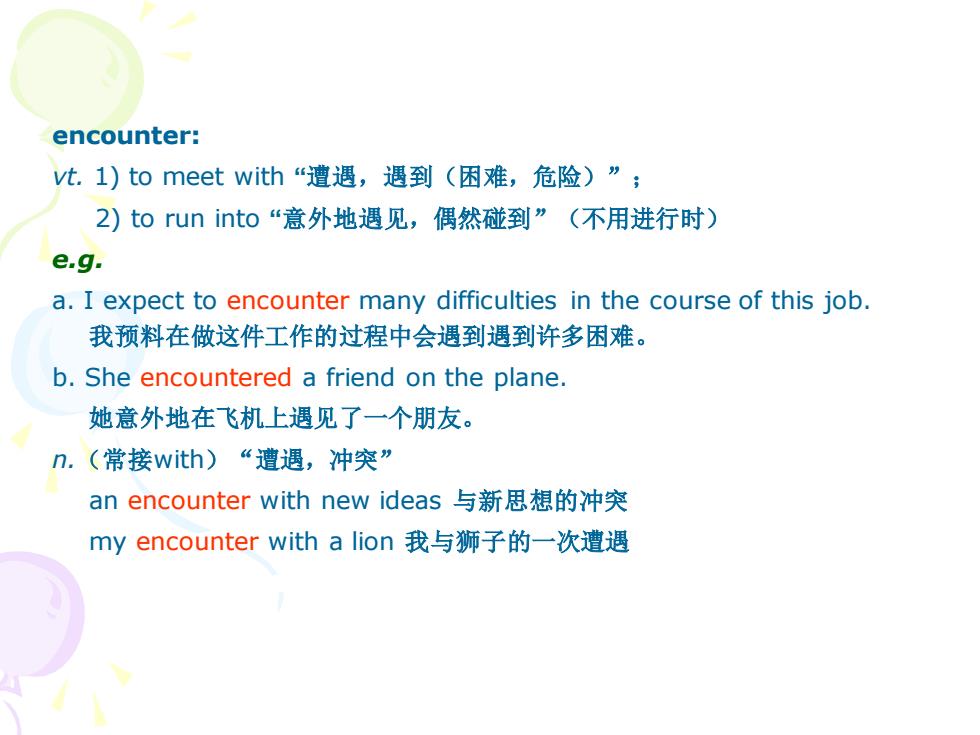
encounter: Vt.l)to meet with“遭遇,遇到(困难,危险)”; 2)to run into“意外地遇见,偶然碰到”(不用进行时) e.g. a.I expect to encounter many difficulties in the course of this job. 我预料在做这件工作的过程中会遇到遇到许多困难。 b.She encountered a friend on the plane. 她意外地在飞机上遇见了一个朋友。 n.(常接with)“遭遇,冲突” an encounter with new ideas与新思想的冲突 my encounter with a lion我与狮子的一次遭遇
encounter: vt. 1) to meet with “遭遇,遇到(困难,危险)” ; 2) to run into “意外地遇见,偶然碰到”(不用进行时) e.g. a. I expect to encounter many difficulties in the course of this job. 我预料在做这件工作的过程中会遇到遇到许多困难。 b. She encountered a friend on the plane. 她意外地在飞机上遇见了一个朋友。 n.(常接with)“遭遇,冲突” an encounter with new ideas 与新思想的冲突 my encounter with a lion 我与狮子的一次遭遇
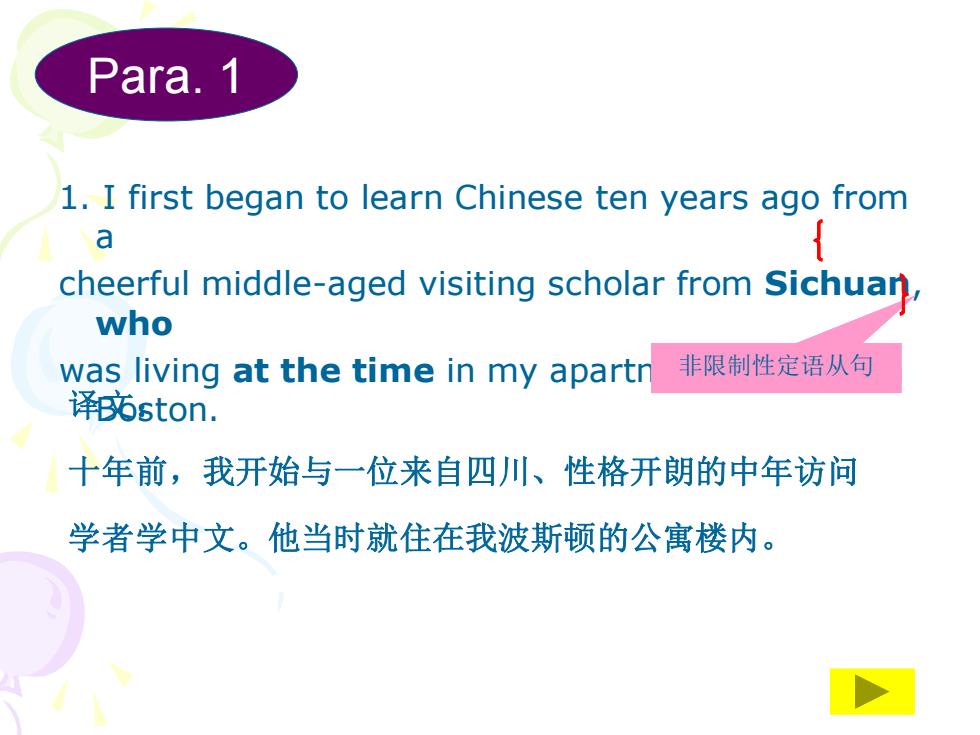
Para.1 1.I first began to learn Chinese ten years ago from a cheerful middle-aged visiting scholar from Sichuan who was living at the time in my apartr 非限制性定语从句 译交ston. 十年前,我开始与一位来自四川、性格开朗的中年访问 学者学中文。他当时就住在我波斯顿的公寓楼内
1. I first began to learn Chinese ten years ago from a cheerful middle-aged visiting scholar from Sichuan, who was living at the time in my apartment building in Boston. Para. 1 译文: 十年前,我开始与一位来自四川、性格开朗的中年访问 学者学中文。他当时就住在我波斯顿的公寓楼内。 非限制性定语从句
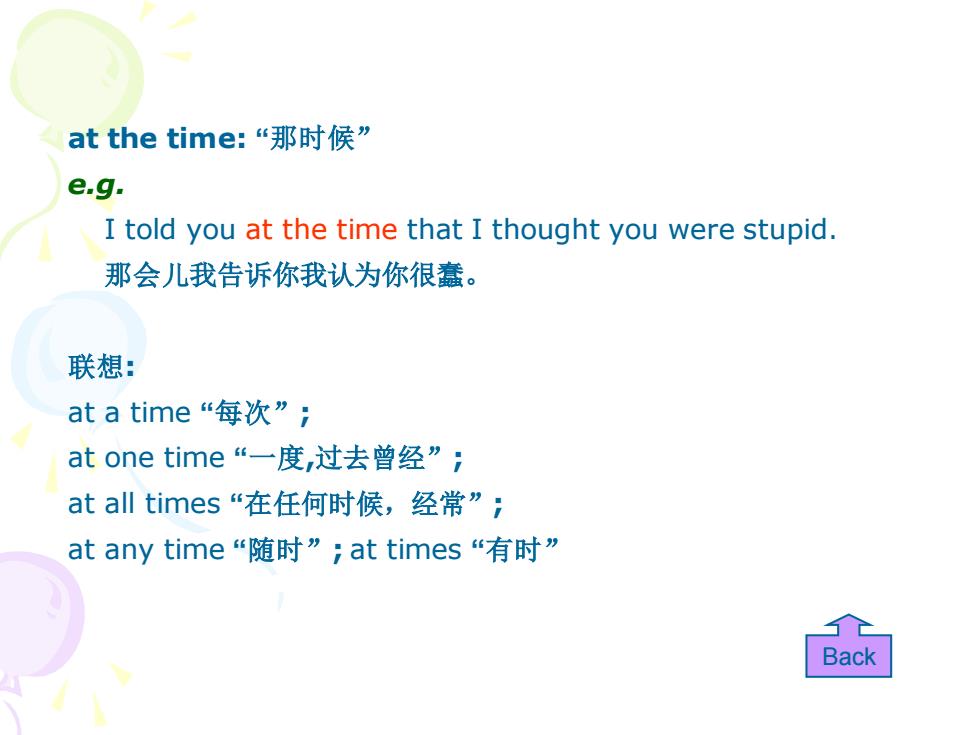
at the time:“那时候” e.g. I told you at the time that I thought you were stupid. 那会儿我告诉你我认为你很蠢。 联想: at a time“每次”; at one time“一度,过去曾经”; at all times“在任何时候,经常”, at any time“随时”;at times“有时” Back
at the time: “那时候” e.g. I told you at the time that I thought you were stupid. 那会儿我告诉你我认为你很蠢。 联想: at a time “每次”; at one time “一度,过去曾经”; at all times “在任何时候,经常”; at any time “随时”; at times “有时” Back

Para.1 2.He was a great talker,and often our lessons would turn into lengthy digressions on various aspects of Chinese culture. 译文: 他非常健谈,我们的中文课经常离题,长时间去谈论 中国文化的方方面面
2. He was a great talker, and often our lessons would turn into lengthy digressions on various aspects of Chinese culture. Para. 1 译文: 他非常健谈,我们的中文课经常离题,长时间去谈论 中国文化的方方面面
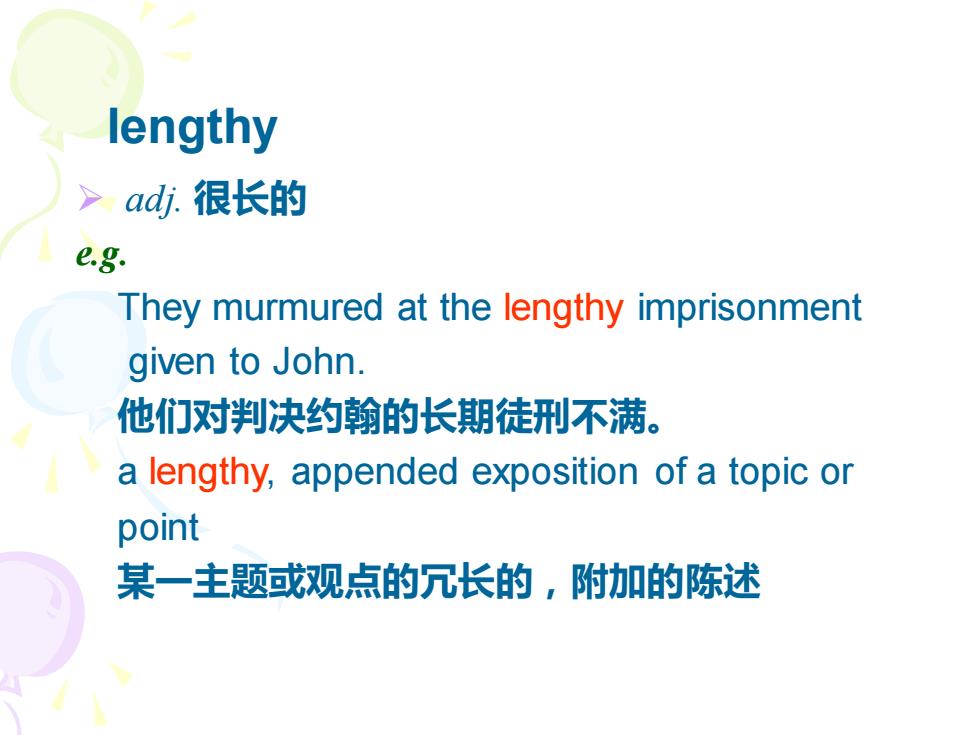
lengthy ≥ad,很长的 e.g. They murmured at the lengthy imprisonment given to John. 他们对判决约翰的长期徒刑不满。 a lengthy,appended exposition of a topic or point 某一主题或观点的冗长的,附加的陈述
➢ adj. 很长的 e.g. They murmured at the lengthy imprisonment given to John. 他们对判决约翰的长期徒刑不满。 a lengthy, appended exposition of a topic or point 某一主题或观点的冗长的,附加的陈述 lengthy
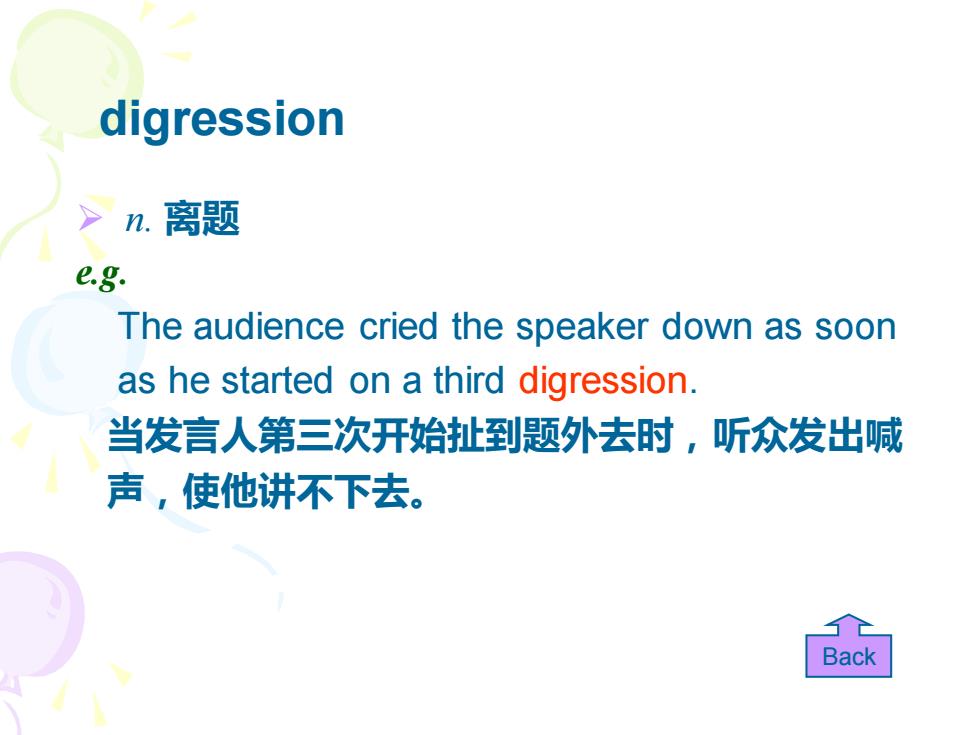
digression > n.离题 e.g. The audience cried the speaker down as soon as he started on a third digression. 当发言人第三次开始扯到题外去时,听众发出喊 声,使他讲不下去。 Back
➢ n. 离题 e.g. The audience cried the speaker down as soon as he started on a third digression. 当发言人第三次开始扯到题外去时,听众发出喊 声,使他讲不下去。 digression Back